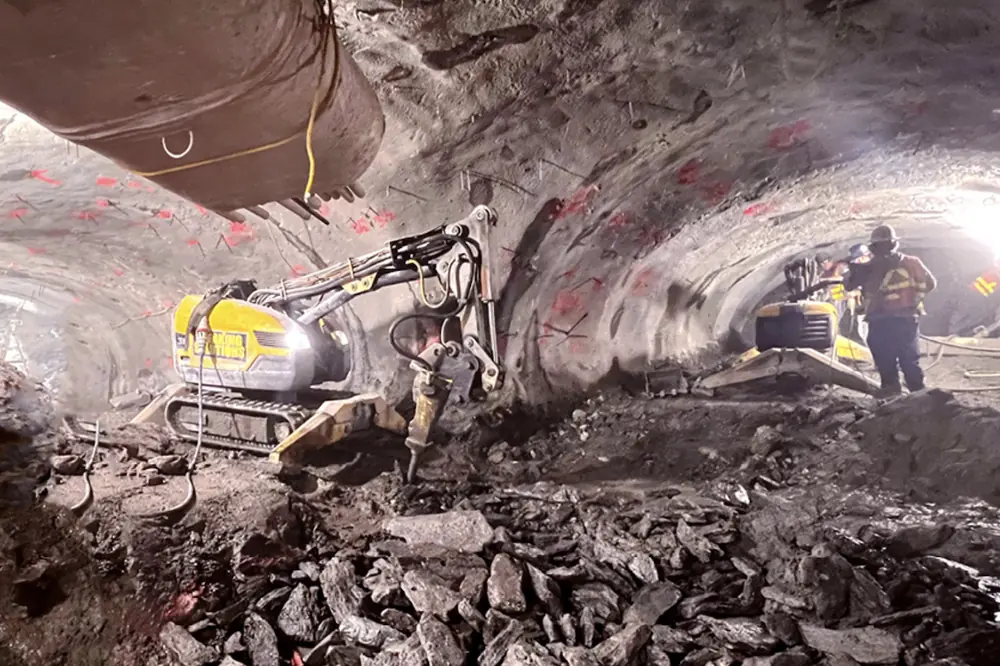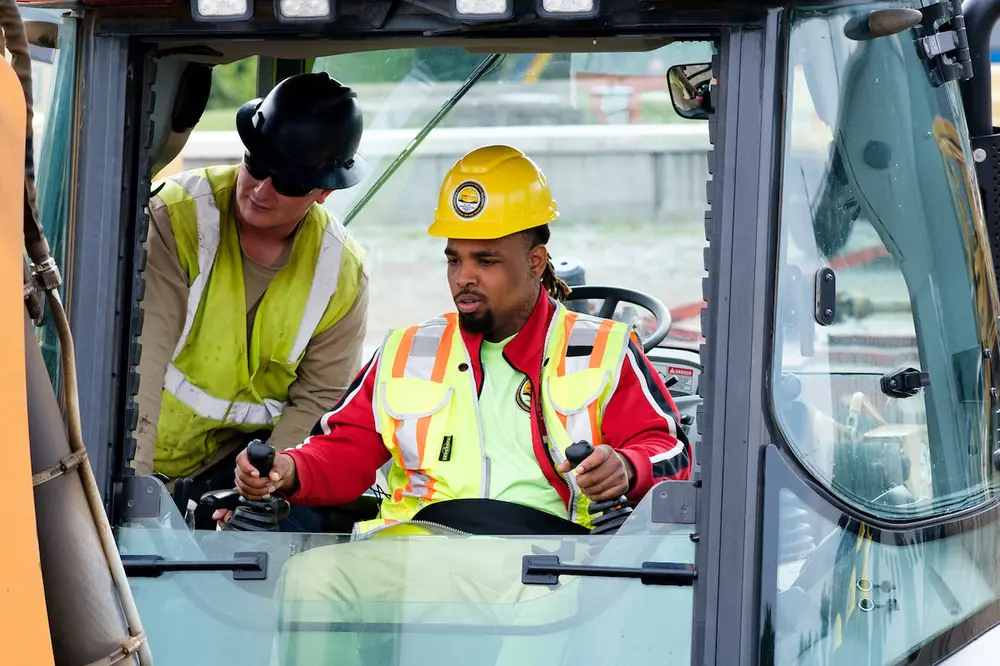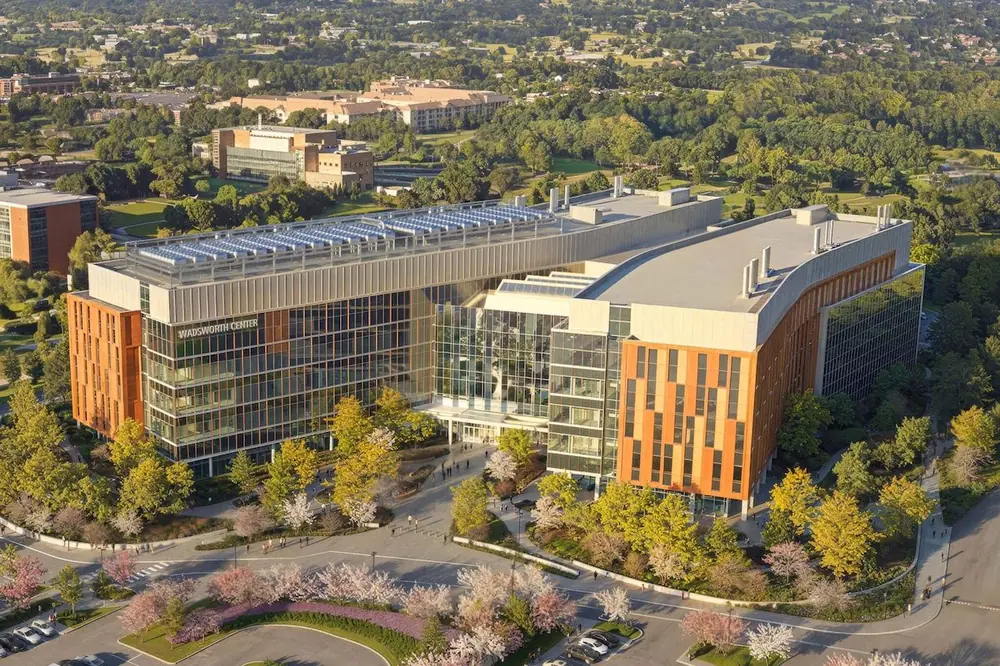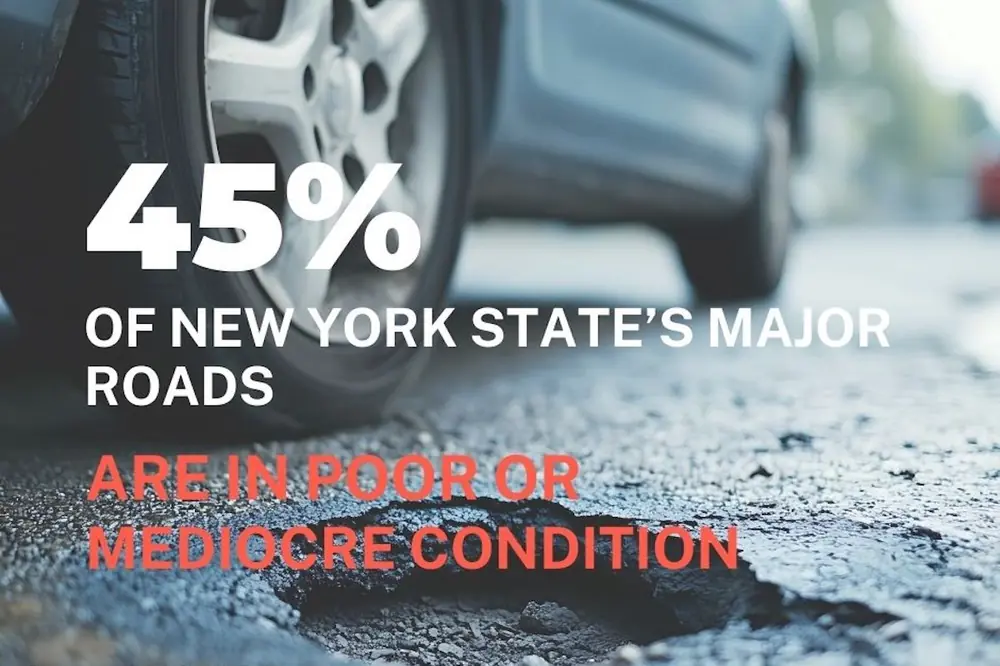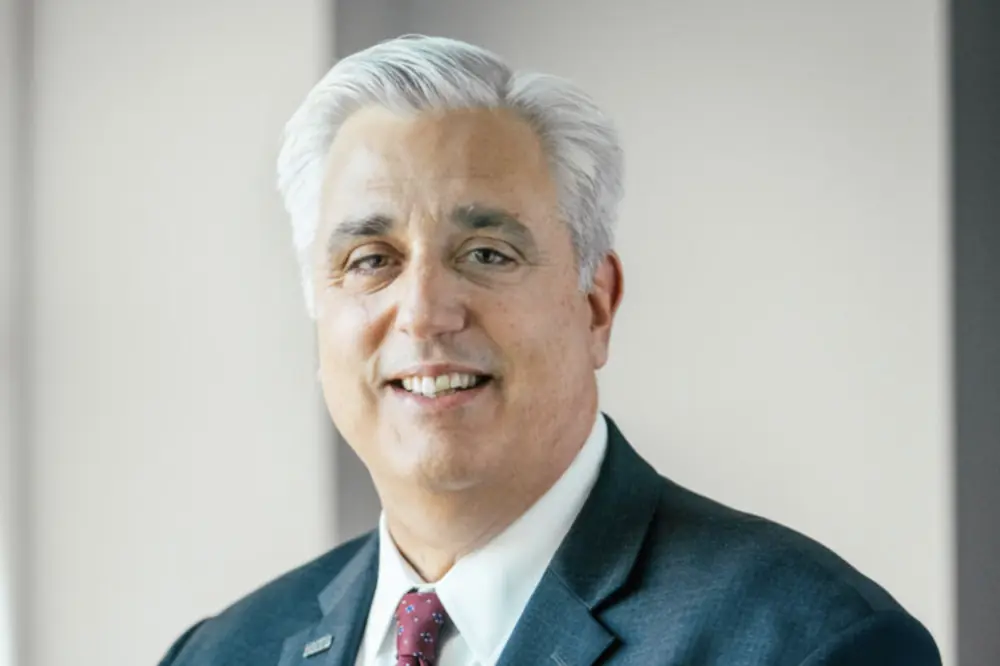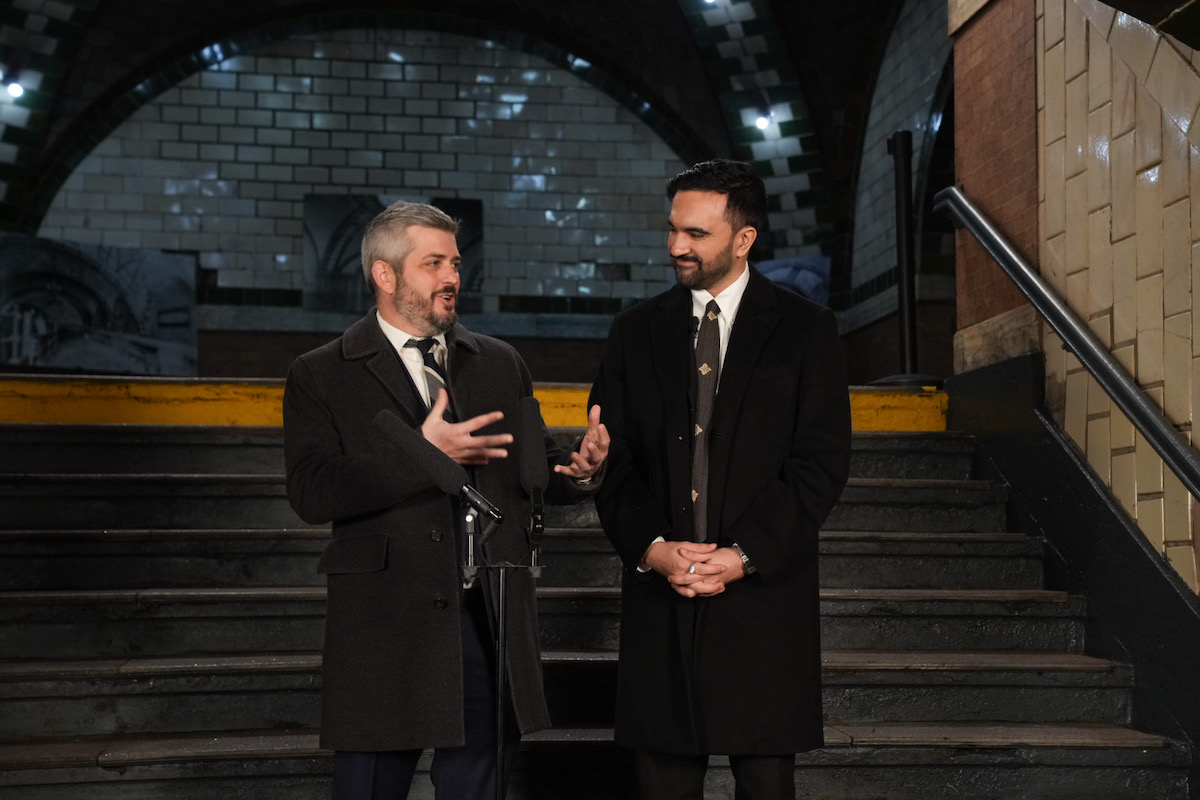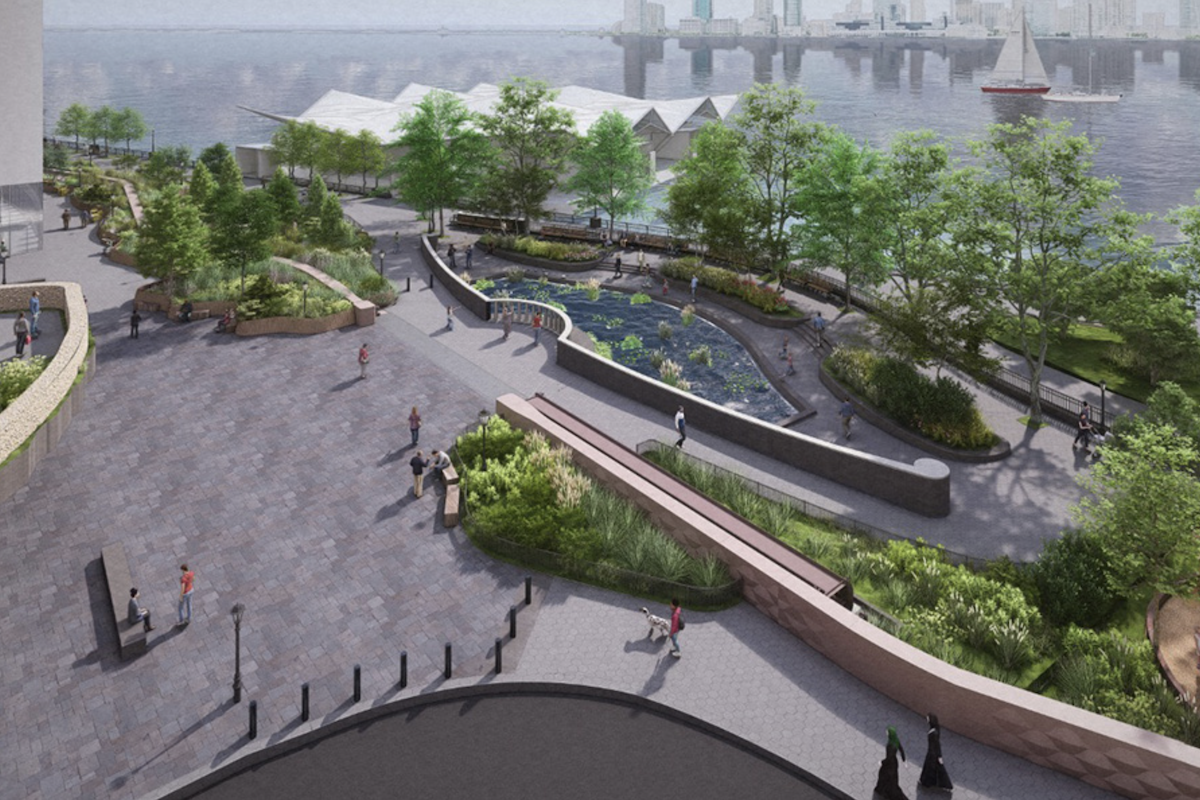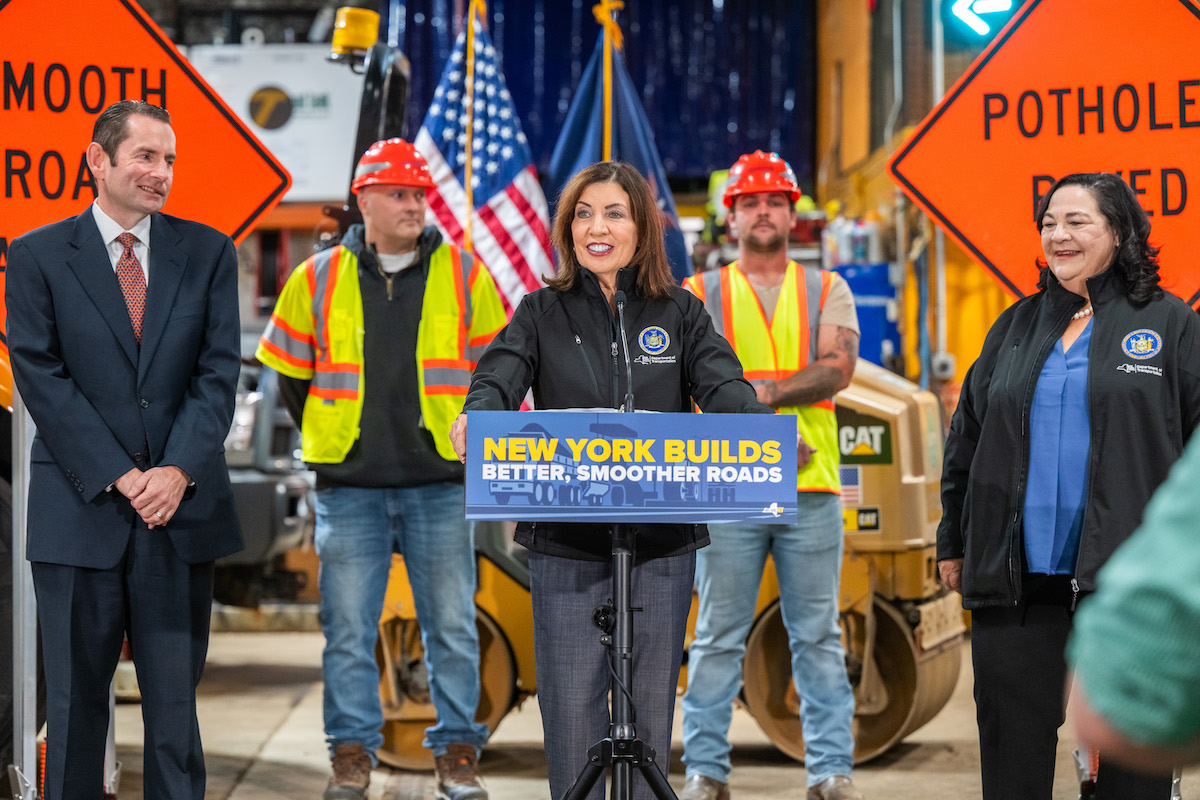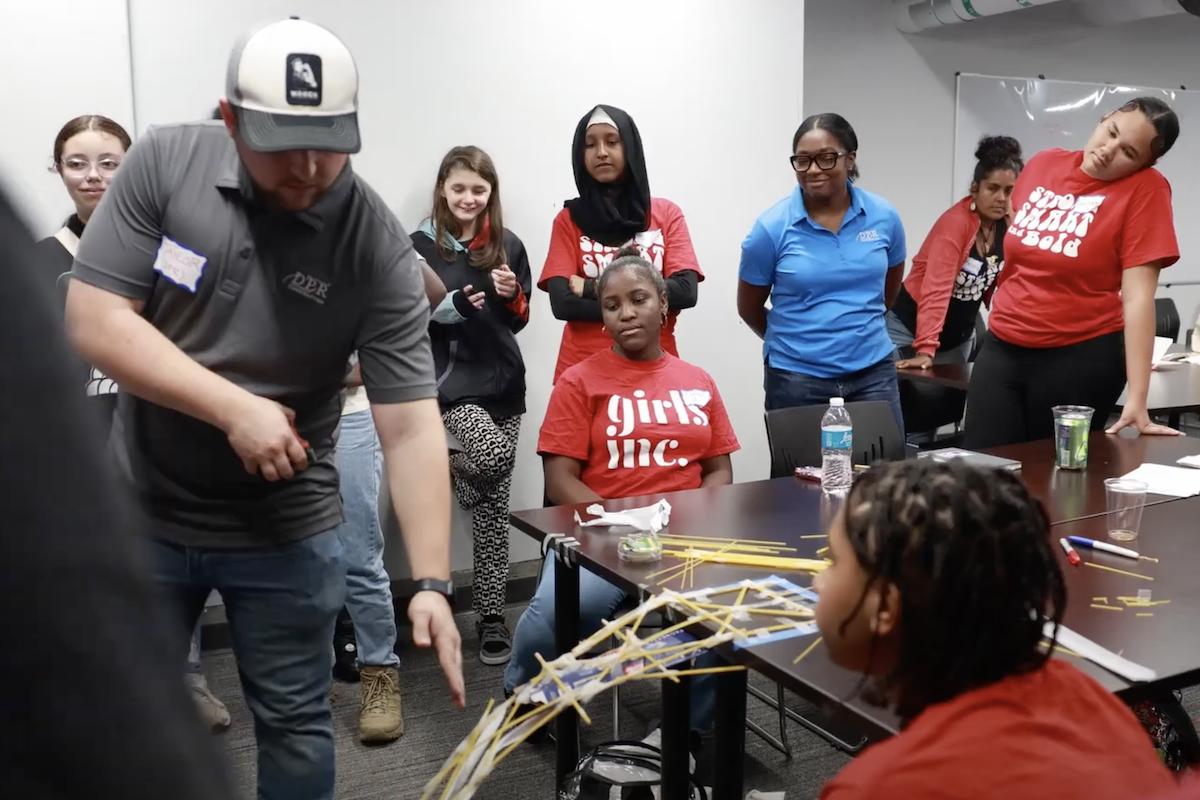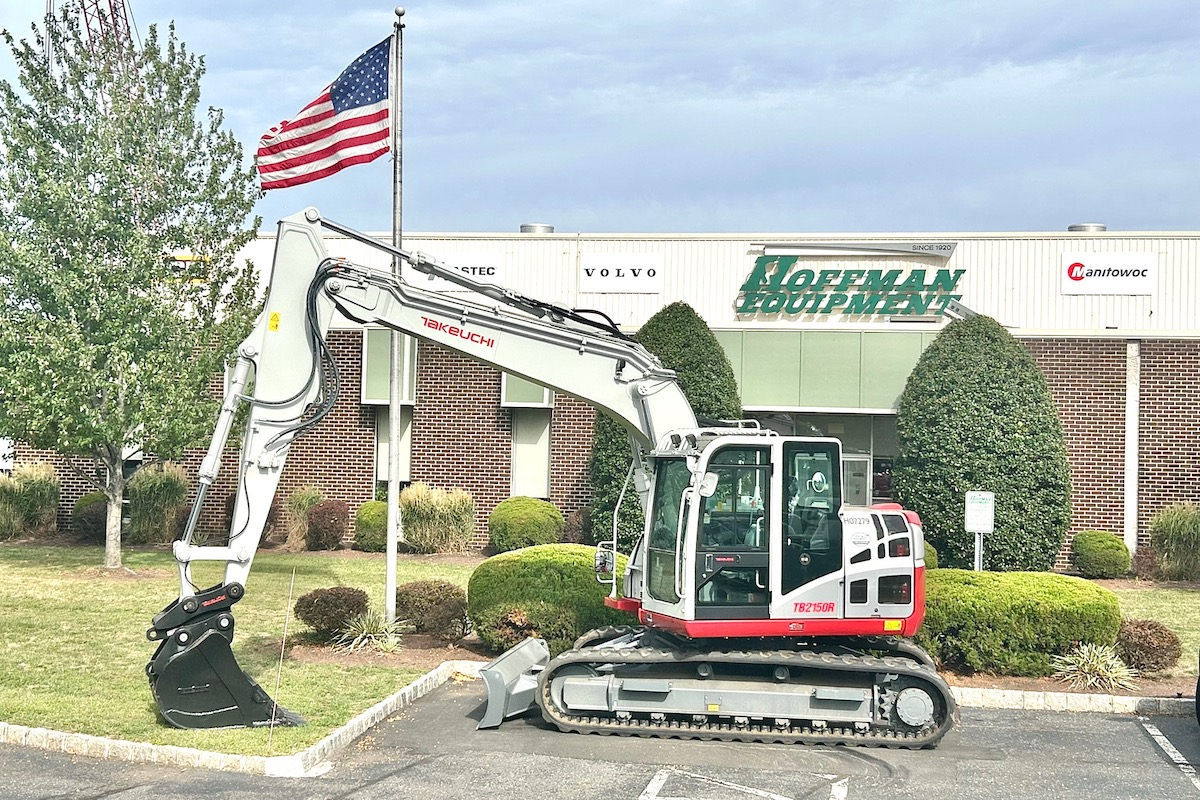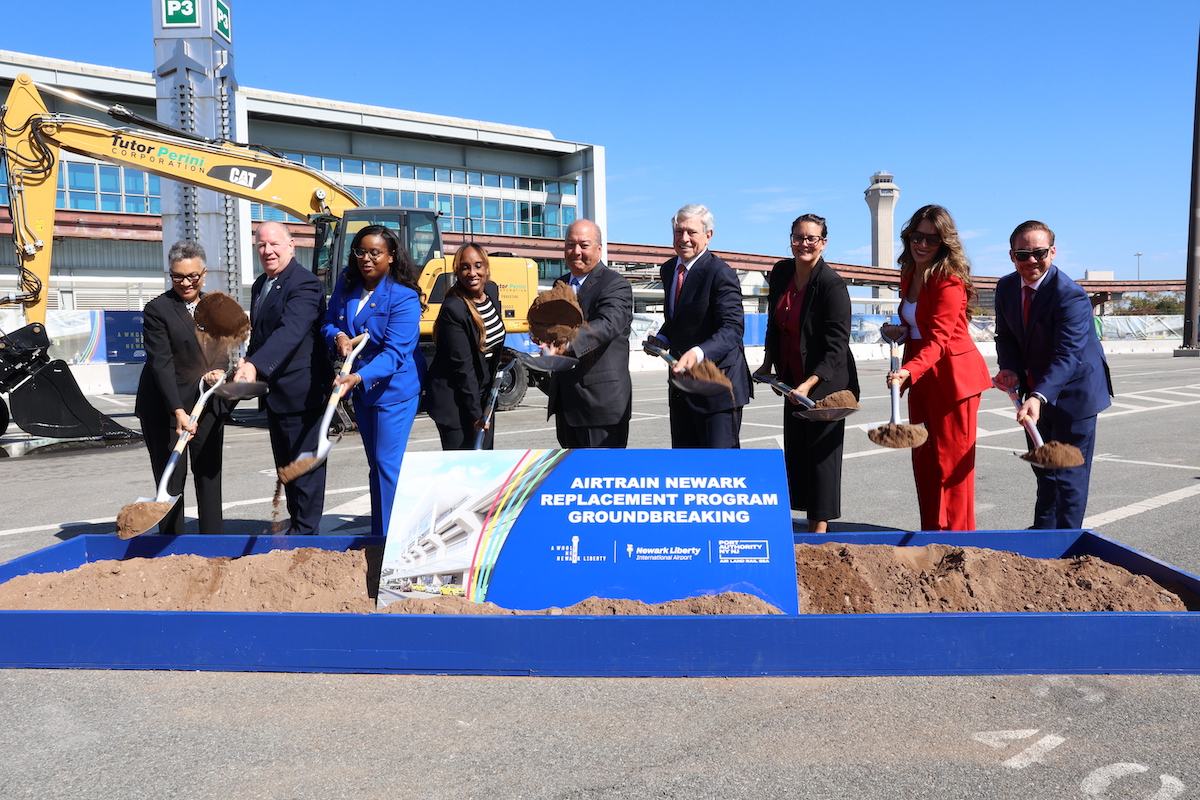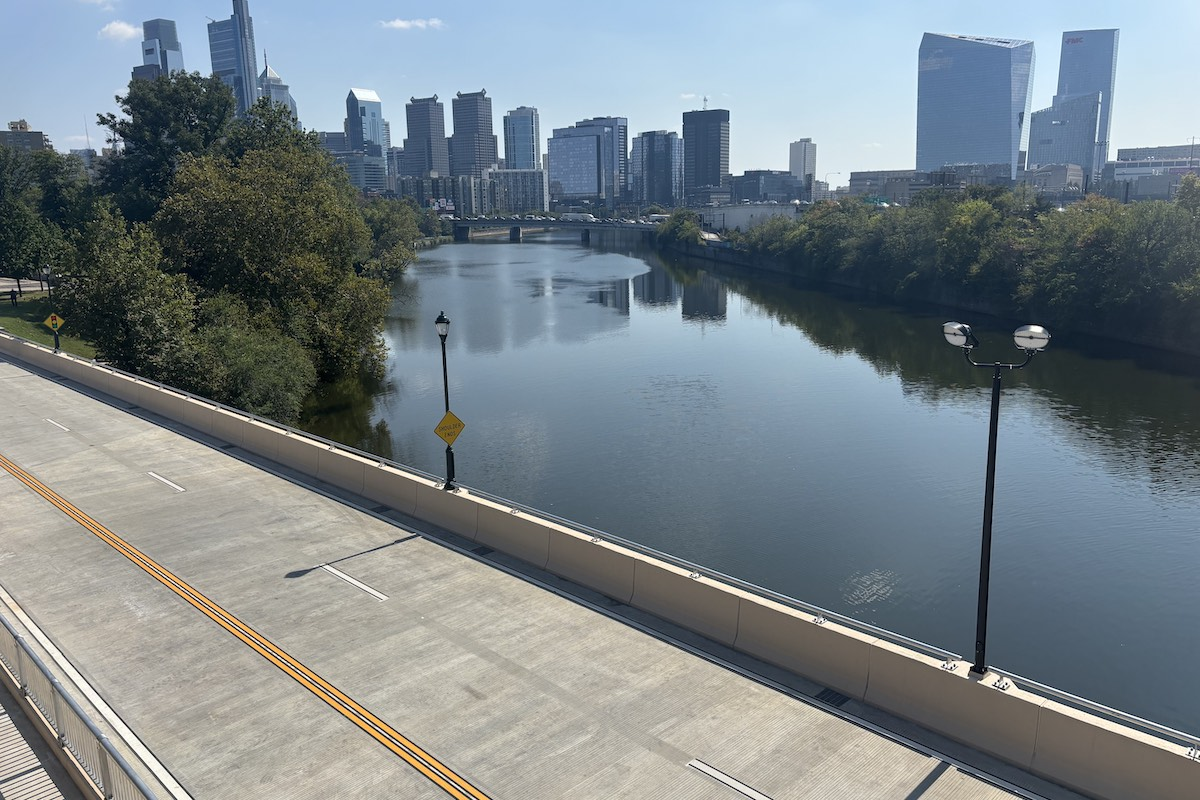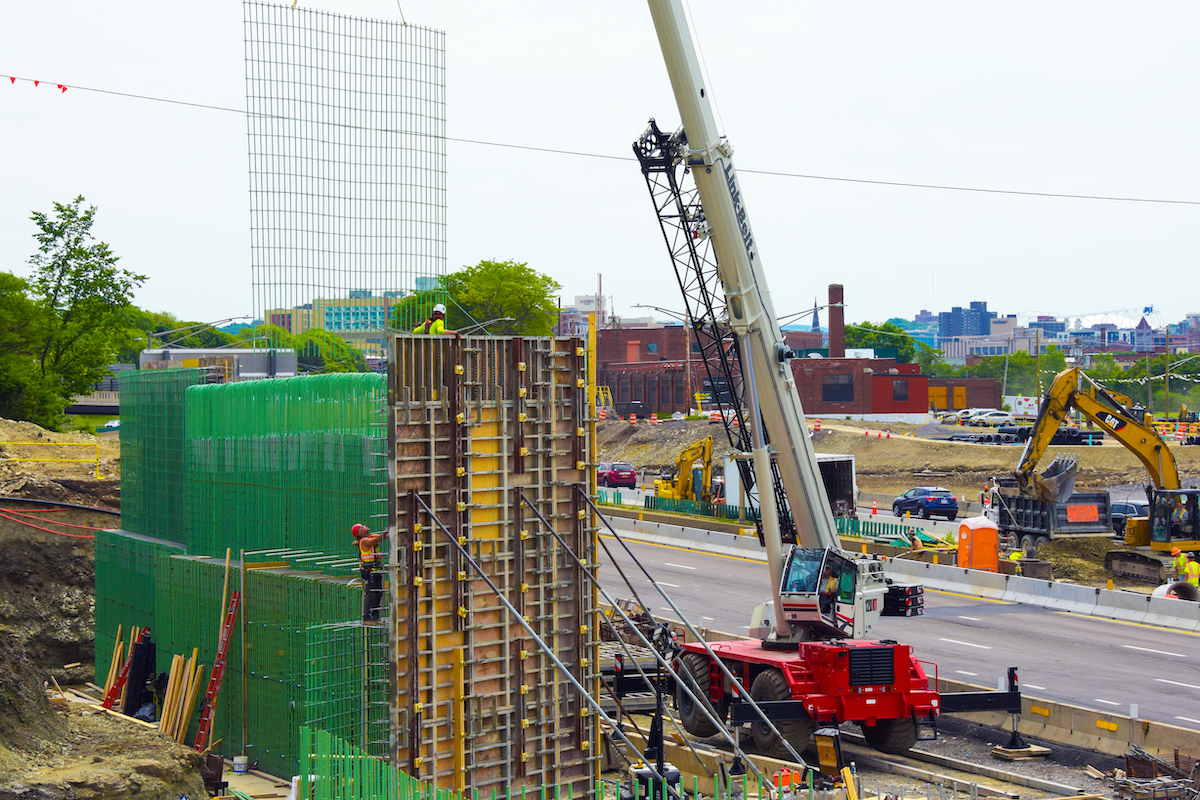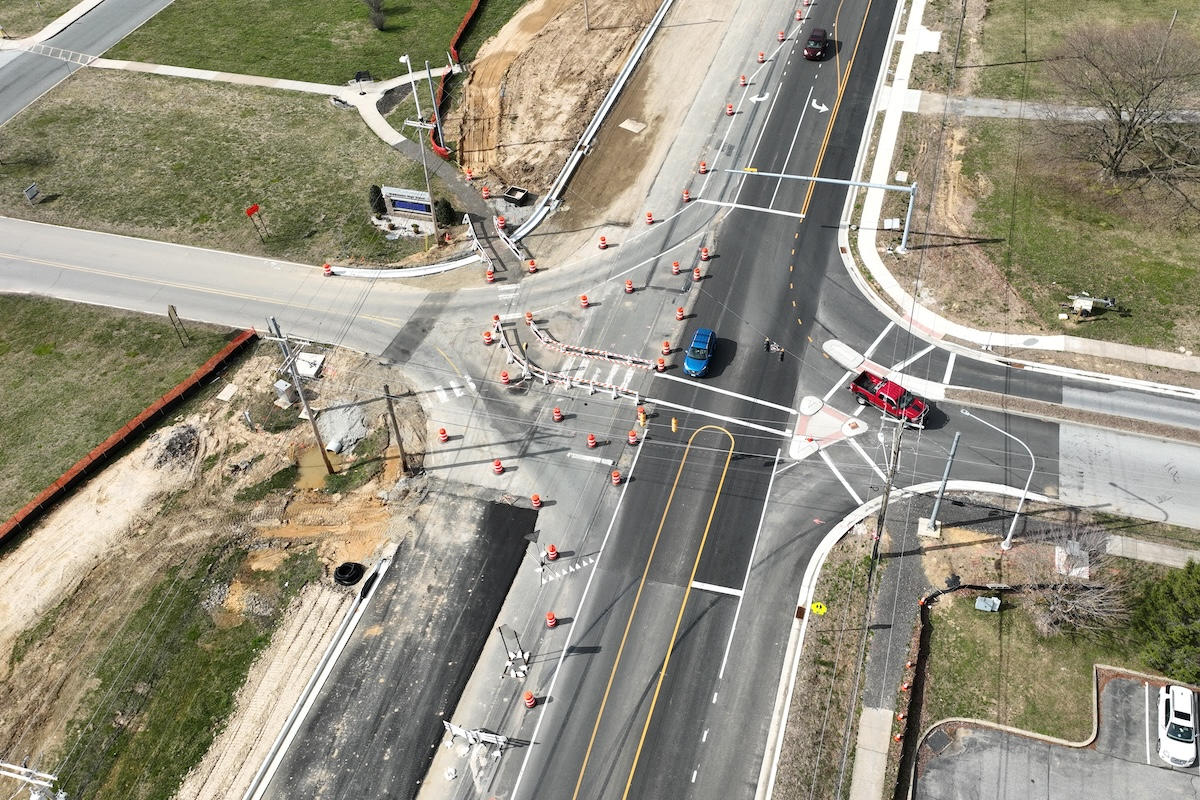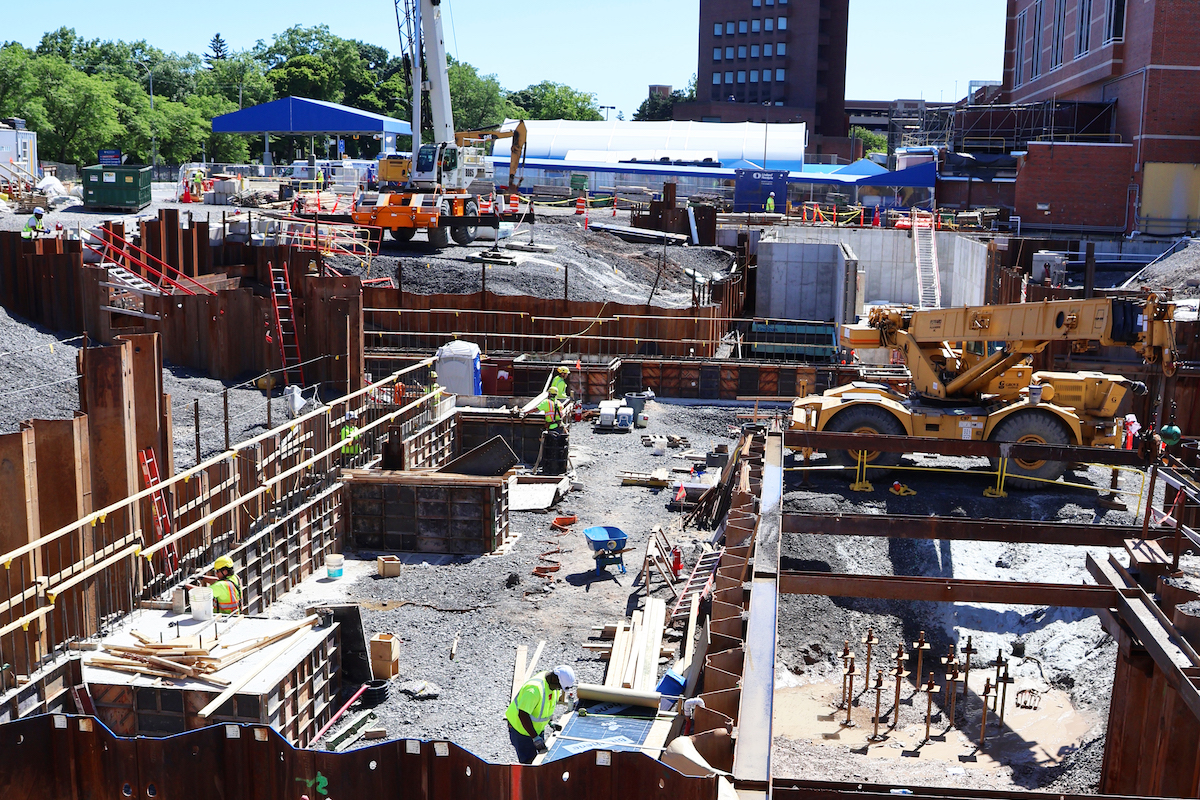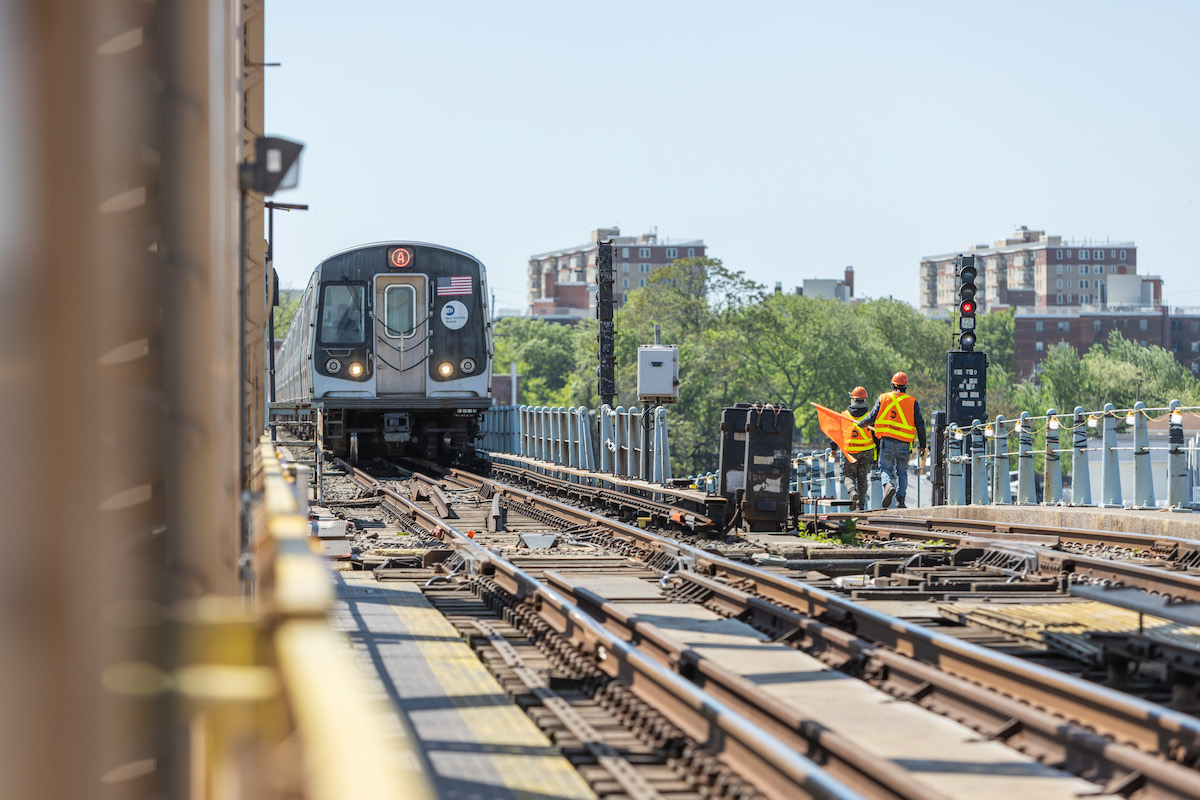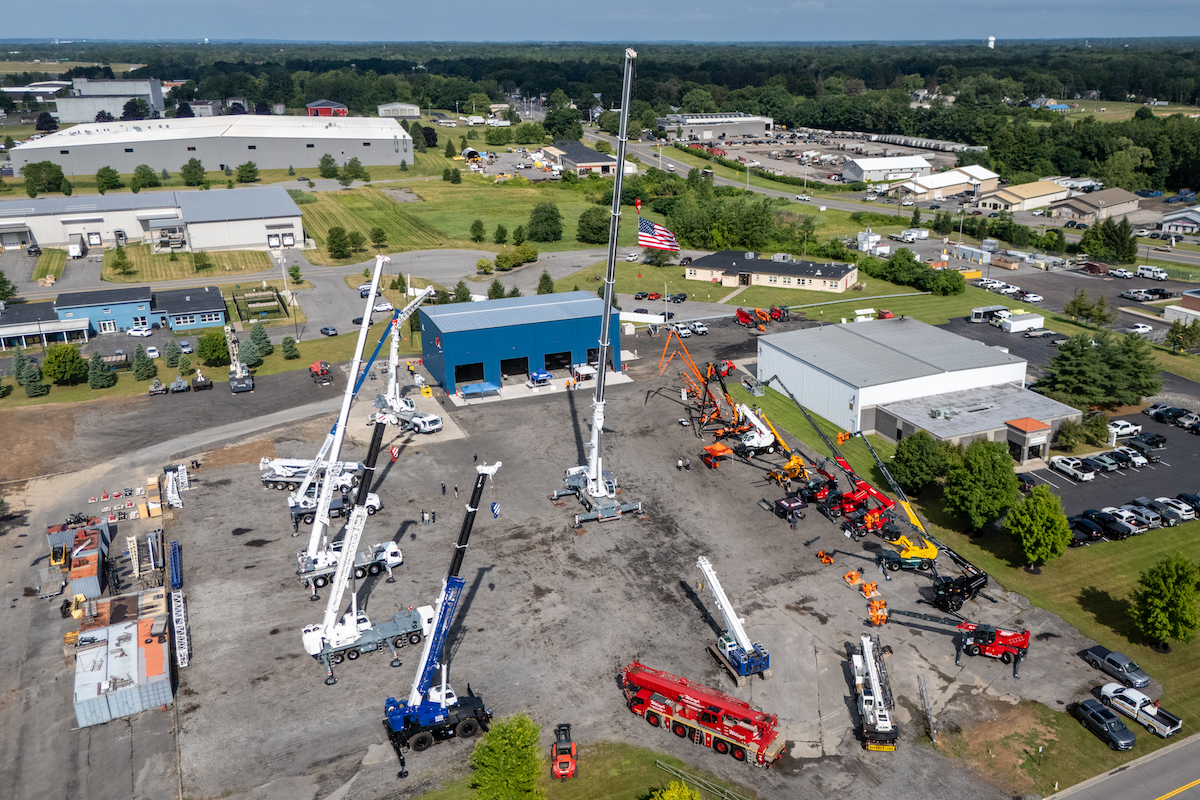The Wisconsin Department of Transportation (WisDOT) has recently completed a vital project to replace the eastbound US 10 bridge over County E in the town of Waupaca. At this heavily traveled location, US 10 has an average daily traffic (ADT) count of 21,400 vehicles in 2020, and a projected ADT of 25,600 vehicles in 2040; truck volumes are calculated to be approximately 22.8 percent for this segment of US 10. The original bridge – constructed in 1965 – was nearing the end of its useful life, exhibiting extensive cracking throughout the surface of the bridge deck and noticeable deterioration of other components.
The replacement project is designed to ensure long-term structural capacity and reduce maintenance efforts and costs. In addition to the new bridge structure, the project also included asphalt pavement, concrete pavement, grading, and barrier replacement.
WisDOT designed the structure and overall project. Vinton Construction Company is the prime contractor, Lunda Construction Company is the bridge sub-contractor, AECOM provided construction oversight. The $2.64 million project contract was awarded in 2019; the project was funded with federal and state funds (80 percent federal/20 percent state).
“In 1990 the bridge received a deck overlay, and in 1996 new concrete parapets were retrofitted when the structure was converted from two-way traffic to one-way eastbound traffic. The centerline was moved slightly so that there is now a 9-foot left shoulder and a 10-foot right shoulder. A maintenance project was completed in 2014 to replace the northeast wing wall and patch deteriorated concrete throughout the substructure units.”

| Your local Trimble Construction Division dealer |
|---|
| SITECH Allegheny |
| SITECH Northeast |
| SITECH Allegheny |
| SITECH Northeast |
Arneson explains that as a result of the regular bridge inspections, a project was entered into the WisDOT transportation program in September 2013 – an improvement project originally planned as a superstructure replacement. “However, during project scoping in November 2015, it was determined that as a result of excessive cracking identified in the bridge slab, on both the top and bottom sides of the slab, as well as a significant level of deterioration in other bridge components, a bridge replacement was the most cost-effective solution. Additionally, the original slab was poured integral with the pier columns (i.e., no pier cap was built). Because of this, removal of the slab would jeopardize the pier columns. Design efforts began in the fall of 2017 and were completed February 2019, 18 months ahead of the originally scoped schedule.”
Although the US 10 westbound bridge is structurally very similar to the eastbound bridge, it is considerably newer and therefore should not need to be replaced until approximately the year 2050. The proximity of the adjacent bridge resulted in challenges, Arneson comments. “To ensure future viability of the new bridge, it was desirable to adhere to current design standards while accommodating the substandard features of the westbound bridge until the westbound bridge is reconstructed.”
To address vertical constraints associated with the existing US 10, the adjacent westbound bridge, shallow bedrock, and the distance between the structures, a haunched slab was selected as the best option for the new bridge, she explains.
Both the eastbound and westbound structures currently restrict the horizontal and vertical clearances on County E, based on current design standards, Arneson points out. In order to minimize costly profile adjustments to eastbound US 10, as well as challenges associated with the resulting difference in vertical elevation between the two US 10 roadways, the new eastbound bridge meets minimum design standards for horizontal and vertical clearance:
In terms of construction staging, several options were evaluated considering safety, traffic impacts, duration, cost, and overall quality, says Arneson. “These options included staging the bridge to construct half at a time under a single lane, constructing a by-pass road with either one or two lanes, or constructing crossovers with three lanes on the westbound bridge (two westbound lanes and one eastbound lane prior to Memorial Day and the opposite after Memorial Day).”

| Your local Trimble Construction Division dealer |
|---|
| SITECH Allegheny |
| SITECH Northeast |
| SITECH Allegheny |
| SITECH Northeast |
“The selected option was to construct the crossovers,” she continues. “This option resulted in the lowest estimated cost, shortest construction duration and resulted in a high-quality slab, because traffic was not on the structure when it was poured. Historical traffic counts indicated that traffic impacts would be minimized by switching the direction of the single lane reduction at Memorial Day.”
As to other construction challenges, Arneson reports that this part of Wisconsin has experienced above average rainfalls during the 2020 construction season. “Though the rain impacted some of the day-to-day schedules, the contractor was able to meet the project’s interim completion dates. Additionally, due to lower traffic volumes stemming from the COVID-19 pandemic, crews were not required to modify construction staging during the Memorial Day holiday.
“Replacing this bridge provided for the appropriate solution, at the appropriate time, to upgrade the structure to current standards and to maximize public safety. This was accomplished while meeting the needs and expectations of the public in terms of providing a quality facility for transporting goods and services throughout the state, with minimal traffic disruptions.
“The new structure will minimize future impacts to traffic by reducing the need for maintenance efforts to keep the structure serviceable. In addition, this project successfully addresses current needs, while accommodating future improvements to US 10 and County E.”












